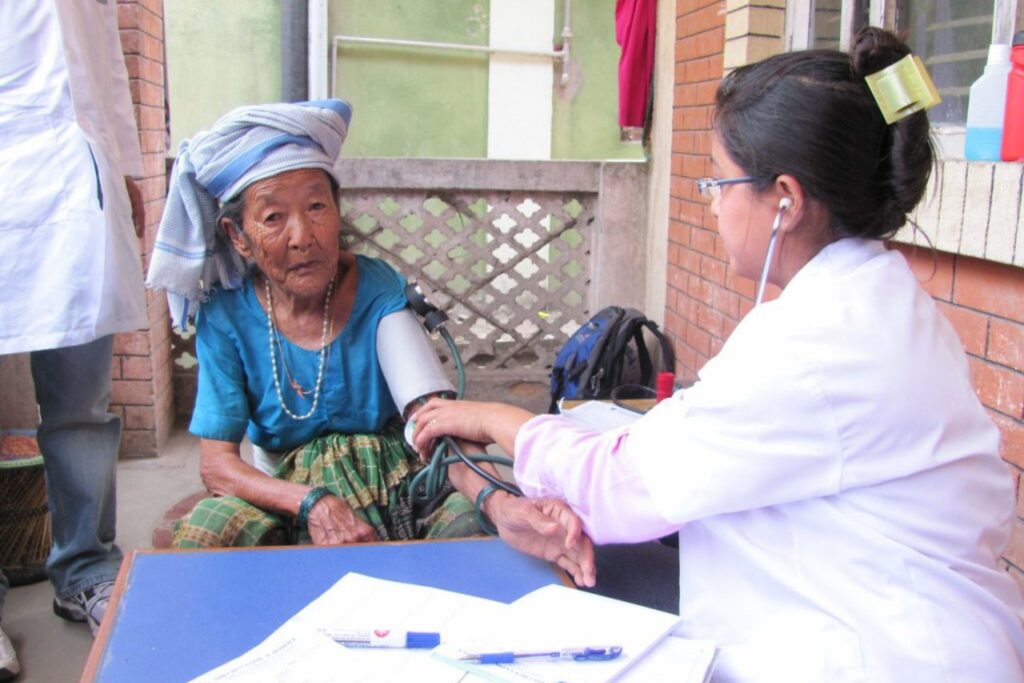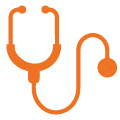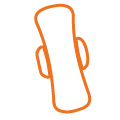Health and Hygiene
Saving lives and preserving the health of the most vulnerable
In both India and Nepal, the regions in which we are active are confronted with a significant lack of access to health care, both materially, geographically and financially.
One figure : A report by the World Health Organisation (WHO) reveals that 4.2% of India’s population, or more than 50 million people, fall into poverty every year because of high health costs.

Karuna Shechen ensures the development of appropriate solutions to save lives, alleviate suffering and preserve the health of the most vulnerable. Our clinics and health posts are open every day, without interruption, offering diagnostic, general, specialised and alternative medical services.
Prevention being the best medicine, our teams redouble their efforts to raise awareness among our beneficiaries about malnutrition, menstruation, maternity, breastfeeding and infantile diseases. Finally, we offer farmers ways to improve the health of their animals.
We work closely with local authorities to also intervene in remote community health posts through the provision of equipment and training of health workers.
Our impact in 2023



One of our programmes in India
Educating about oral hygiene
In India, populations face various dental health issues: mouth cancer, overconsumption of fluoride, and access to care.
The dental health program includes education on oral hygiene, prevention, diagnosis, and treatments. The mobile clinic provides these services for free and focuses particularly on children. Oral hygiene is no longer seen as a luxury, but as a necessity.
I went to the clinic because I was suffering from tooth pain. After the examination, the dentist suspected submucous fibrosis, caused by my daily consumption of 10 packets of gutka (chewing tobacco) for the past five years. She strongly suggested that I quit and change my diet, consuming more fruits and vegetables. She also prescribed facial exercises to improve the muscle movements of my mouth. I was impressed by the dentist’s warm welcome and the affordable cost of the consultation.
Biswajit Mandal, livestock farmer – India